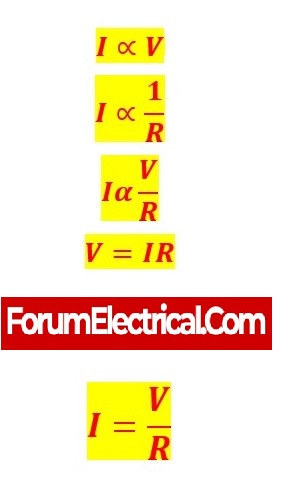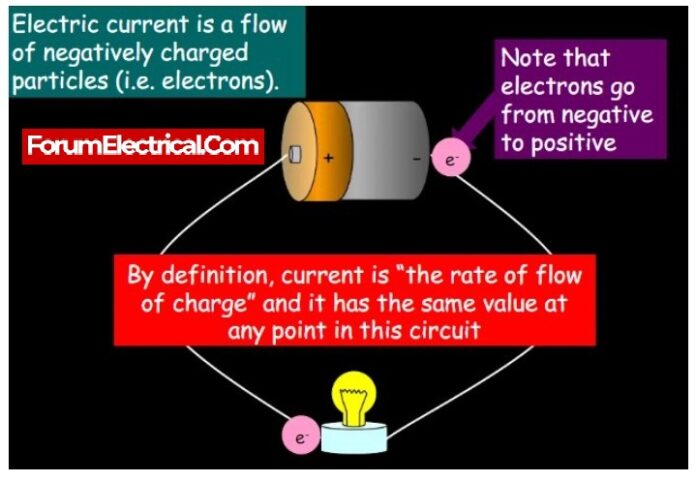What is Current?
The movement of electrical charge carriers like electrons is known as current. Positive and negative locations both experience current flow.
What is the current symbol?
The letter I is typically used to represent current.
What is the SI unit of Current?
The ampere is the SI unit used to measure electric current and it is represented by A.

What is Current according to Ohm’s law?
Ohm’s law states that the current flowing through a conductor between two specific points is also directly proportional to their potential differences.
Heating and magnetic effects are produced by electric current. Ohmic loss in the conductor causes some heat to be produced as current flows through it. Incandescent light bulbs employ this characteristic to produce light.The magnetic field would have a higher field if the current were stronger.
Formulas to determine Current
The formulas for calculating the current can be obtained if the voltage (V) and resistance (R) of any circuit are known.

How do calculate one ampere of current?
One ampere of current is defined as one coulomb of electrical charge moving across a specific area in one second.
How to measure the electric current?
Electric current can be measured with a device called an “ammeter”.
Type of Current?
Current are 2 types
- Alternating Current (AC)
- Direct Current (DC)
Alternating Current
Alternating current is the direction of the current flow that can occasionally change. Alternating current in a circuit is represented by a sine wave.
Direct Current
Unlike alternating current, direct current always flows in the same direction, which has a variable direction of flow. Direct current is represented in the current generated by batteries.
What Effect has Electric Current?
1. The flow of the current for time “t.” A conductor generates more heat the longer a current flow through it.
2. Electrical resistance of the conductor, with resistance, the heat produced increases.
3. As the current is increased, more heat is generated.











